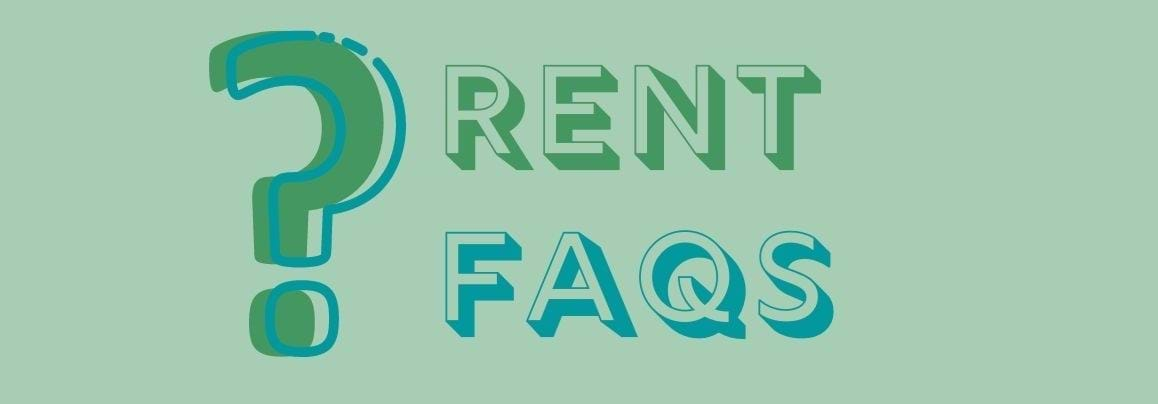- Housing/
- For customers/
- Paying your rent/
- Rent FAQs
Rent FAQs

Here you will find some frequently asked questions.
- Why you should pay your rent
When you became our resident, you signed a tenancy agreement or a lease. This means that you have a legal obligation to pay your rent and keep your account clear. We encourage all residents to pay their rent in advance in line with your agreement, and suggest that you arrange for your rent to be paid at the same time that you get paid. If you need help or support to get your rent account in advance, please contact us.
It is important that you pay your rent on time and do not allow your account to fall into arrears. This is because we depend upon receiving a regular income from rent payments in order to maintain and manage our homes to a high standard.
If you are unable to pay your rent because of a change in circumstances, please contact us as quickly as possible for help and advice. Do not allow the arrears to mount up or you may risk losing your home.
If you do not pay your rent we will take legal action against you. This may result in a County Court Judgement (CCJ) against you which could make it difficult for you to move or get credit.
- I can't afford my rent
If you are struggling to pay your rent, please talk to us. We are here to help. We have our own Money Matters team.
They can provide help and support to increase your income and reduce your expenditure. They can also signpost you to organisations who offer free, independent money and debt advice.
If you would like to speak to a member of our Money Matters team, please call them on 0300 123 6000 or email moneymatters@emh.co.uk
- Paying your rent if you are on benefits
Housing Benefit can only be backdated for a maximum of 4 weeks for working aged claimants, and only then if the claimant can demonstrate good cause for the whole of the 4 week period they are asking for the backdate to cover.
It is therefore extremely important that all Housing Benefit claimants make their claims promptly.
Universal Credit will be paid directly into your bank, building society, or Post Office account each month. This will include your rent, which you must arrange to pay to us yourself. Click here to find more information about paying your rent if you are claiming Universal Credit.
It is your responsibility to make sure that your rent is paid in full and in advance.
- How to avoid getting into arrears
If you live in a rented property, your rent and service charge (if applicable) is due each week in advance. You are charged every Monday for the forthcoming week. If you want to pay your rent fortnightly or monthly, payment must be made in advance.
If you are a leaseholder, your rent and service charge (if applicable) is due on the first of each month. Payments are due in advance.
If you have any questions or difficulties paying your rent, or if you fall behind with your payments, please contact the Income Team immediately.
We are here to help. Please do not be afraid to approach us. The longer you leave it the worse it will get.
- What will happen if I fall into arrears
We take rent arrears very seriously and expect everyone to pay their rent on time. However, wherever possible our approach will be one of prevention not possession. We will take all reasonable and practical steps to keep you in your home. The steps are designed to prevent the escalation of rent arrears through prompt and early advice and assistance.
This will include:
- Contacting you as soon as reasonably possible if you fall into arrears.
- Aiming to agree an affordable repayment plan based upon your income and expenditure.
We will endeavour to support you if you do fall in to rent arrears. However, we will take a firm line with tenants who consistently do not pay their rent or keep to repayment agreements. We will take court action against those who do not pay what they owe. This can result in eviction.
No matter how bad the situation may seem, the sooner we know about your difficulties, and the sooner we can start to work together, the more likely it is that we will be able to help you.
If you are in arrears you will need to reach an agreement with us to clear the debt so that you do not lose your home. We will listen to your circumstances sympathetically and work with you, assisting with benefit claims if necessary to ensure the debt is managed and the rent paid back quickly. Every opportunity will be given to help you, but if you continually fail to keep to arrangements, or do not claim benefits you are entitled to in time, we may take further action.
If you are worried, it is never too late to contact us.
Legal action
We will make every effort to contact you about your rent arrears, highlighting the balance of your arrears and asking that you clear them.If we do not receive payment, we will try to contact you before you receive a Notice of Seeking Possession. This is an opportunity for you to come to a repayment agreement without risking your home. However, if you have a valid Notice of Seeking Possession against you and fail to keep to any agreement we will consider referring you to the county court for a possession order. The costs of the court application and all associated costs will be added to your arrears.
Maintaining payments under a court order
The court will make a court order that mandates what you need to pay to clear your arrears and keep your home. Failure to keep to the terms of the order could result in an application being made to the court to seek your eviction. You will have to pay the cost of the warrant fee.The county court bailiff will carry out the eviction. You must still pay the arrears owed and your name will be entered in the list of County Court Judgements (CCJ) which may prevent you from getting credit and other services.
We continue to vigorously pursue tenants who have left their home with rent arrears and other debts. Your chances of being rehoused in future will be greatly affected if you leave your home owing rent arrears, court costs, or recharged repair accounts.
Remember, if you are having financial difficulties please contact us immediately.
- 48 week tenancies
Please note this only applies to tenants living in Erewash.
The housing element of all Universal Credit (UC) payments is based on a tenant paying rent for 52 weeks a year. If you only pay rent for 48 weeks a year, the housing element of your UC payment is spread over 52 weeks, which means that you will receive less for the 48 weeks but that you will also receive the same amount during your rent-free weeks. In other words, each year you will still receive the same amount but it will be spread over 52 weeks rather than 48.
Because of this, every month you will need to use some of the personal element of your UC payment to make up the shortfall. Your rent account must be kept up to date at all times, so you cannot wait until your rent-free weeks to allow the payments received during those weeks to clear any arrears.
If you would prefer not to have to pay any extra from the personal element of your UC payment every month and no longer have the rent-free periods, please contact us and we will help you amend your tenancy.
